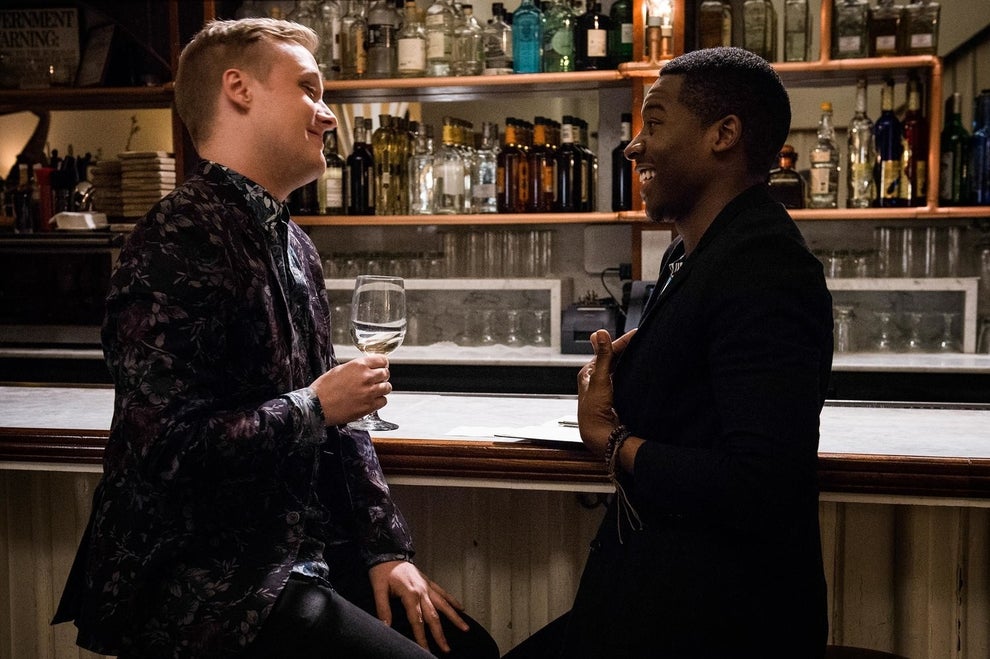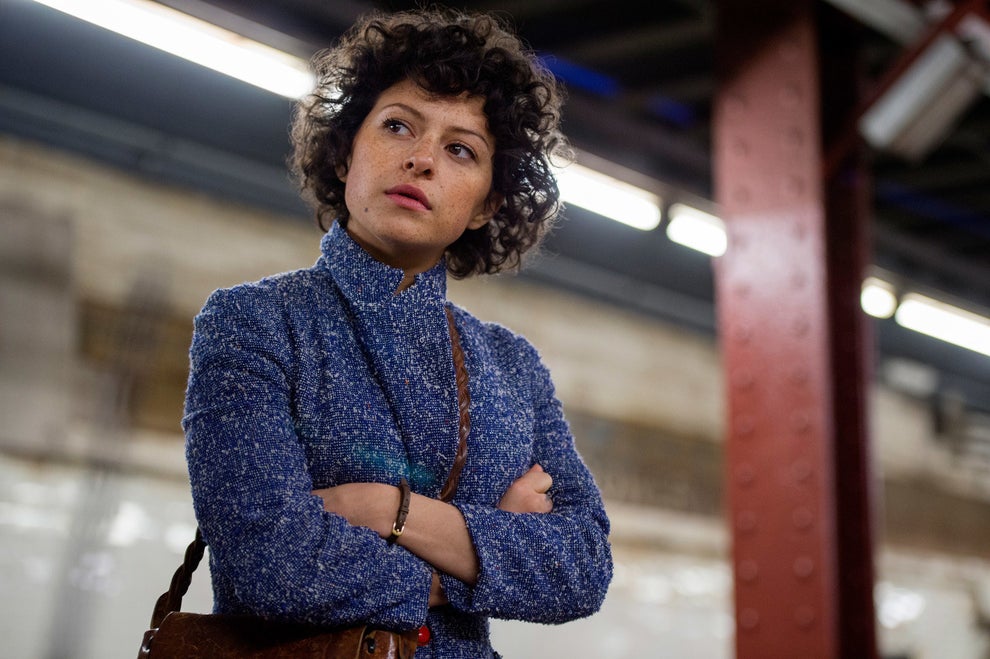
TBS’s upcoming series Search Party has already drawn comparisons to Girls and Broad City. On the surface, yes, it is another series about disaffected young people in Brooklyn, but it’s also a mystery about the search for a missing woman, complete with twists, clues, and an undercurrent of paranoia.
Search Party is exactly the kind of narratively challenging, genre-busting show that we need on TV and it’s easily one of 2016’s best new series. It’s tough to give an elevator pitch for this show, but that makes it all the more exciting.
Here’s why it’s worth checking out.
1. It’s introspective, but it’s plot-driven.
Elliott (John Early), Portia (Meredith Hagner), Drew (John Reynolds), and Dory. TBS
There’s a lot of navel-gazing on shows about twentysomethings, and with good reason: That’s what your twenties are about. The problem with translating the introspection of transitioning into adulthood to a series is that it doesn’t always make for good TV. Shows can feel a bit aimless after a while, with the characters’ journeys toward self-discovery taking precedence over any actual plot developments. The only arcs are emotional and internal, which are compelling, but only to a point.
Search Party, by contrast, is a show that mirrors the self-searching of its protagonist Dory (Alia Shawkat) with the literal search for Chantal (Clare McNulty), who has already gone missing when we meet her pseudo-friends in the premiere. And the latter is pure plot, a compelling mystery that propels the story along, even as Dory and her friends struggle to find direction. “The show really balances the characters’ personal lives with the pursuit of this mystery,” co-creator Charles Rogers told BuzzFeed News at South by Southwest in March. “You end up visiting different worlds that these characters never would have been a part of, or been witness to, if they hadn’t started going down this rabbit hole.”
2. It’s critical, but it’s compassionate.
Dory’s ex Julian (Brandon Micheal Hall) interviews Elliott. TBS
The characters of Search Party are sometimes hard to love, to put it mildly. Dory herself is the most relatable, while her boyfriend Drew (John Reynolds) and her friends Elliott (John Early) and Portia (Meredith Hagner) display various levels of egotism and selfishness throughout. One of the show’s strengths is in its ability to be critical of these characters without losing sympathy for them. They’re assholes, but they’re our assholes.
“It’s so easy to step in and say, these people have meaningless lives, they don’t know what struggle is, they all feel bad for themselves, they’re all narcissists, but I don’t think that’s what the show does at all,” producer Lilly Burns said at SXSW. “It really carefully deals with some people who have lives that they’re searching for meaning in.” For those who were turned off by the largely unlikeable characters in Fort Tilden, the film that Rogers and co-creator Sarah-Violet Bliss made before Search Party, this is a somewhat gentler approach to millennial malaise. You know these people are dicks a lot of the time, but you still want the best for them.
The key here is in finding and maintaining the right tone: Search Party casts a well-deserved side-eye on so much of the culture Dory and her friends are enmeshed in, but it does so with a relatively soft touch. The result is a work that is biting and darkly funny but never cruel. As Shawkat put it, “It’s not mean-spirited, but it’s sharp.”
Shawkat noted that while Search Party might start from a place of mockery, once “you get to know the people,” that changes. “Their choices are still maybe unforgivable, but we see why they’re making the choices,” she said.
It’s essential that audiences understand where these complicated characters are coming from, even if they don’t agree with them. Dory is a particularly frustrating example: She continually abandons real responsibilities to find Chantal, but her obsession is genuinely rooted in a desire to fix something that’s broken, an intangible emptiness that goes beyond one missing woman.
4. It’s a mystery, but it doesn’t hinge on the reveal.
Dory searches for clues. TBS
It’s easy to understand why TV audiences are wary of mysteries at this point. When a show builds to a reveal, and that reveal feels half-assed, everything that came before it is suddenly tainted. It’s like, Congrats, you wasted a season on getting to this unbearably disappointing conclusion.
Bliss accurately described Search Party as, “if your annoying friends got entangled in a real mystery.” But the way these characters go about solving that mystery is more important than what they ultimately end up uncovering. At the risk of sounding trite, it’s about the journey, not the destination.
That doesn’t mean the mystery doesn’t matter, because, again, this is a plot-driven series, and the puzzle will hook viewers from the first episode. But correctly guessing the ultimate answers or somehow getting spoiled on the ending won’t actually affect your enjoyment of Search Party, because the real thrill is watching the characters get there. That’s the trick to making a mystery work on television — a medium that requires a much bigger time investment than film — and it’s something that the creators and writers of Search Party clearly thought long and hard about.
5. It’s familiar, but it’s not like anything else on TV.
Drew and Dory seek guidance. TBS
“The setting’s kind of familiar,” Shawkat admitted. But, she added, “I think the mystery really takes the tone into something else … There’s a different kind of structure to this show.” And given that Search Party isn’t an easy show to get a handle on, there’s no harm in having some points of reference, according to Rogers, who was optimistic about the comparisons to Broad City and Girls.
The problem is less about audiences making those analogies, than it is about people dismissing the show as a copycat, an unfair judgment made on superficial qualities alone. Rogers’ and Bliss’s sensibilities — along with those of co-creator Michael Showalter — are decidedly not for everyone. But Search Party has a style that’s worth checking out, and it’s one that might even attract those who haven’t gotten hooked on Girls or Broad City.





